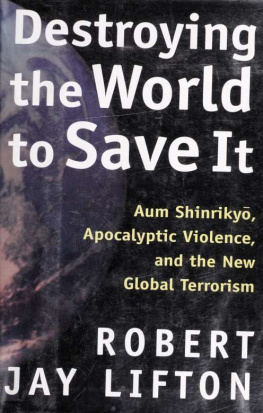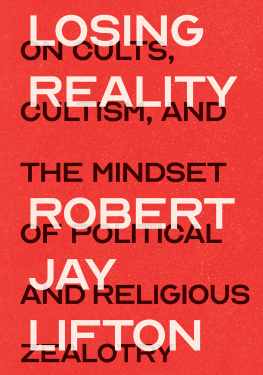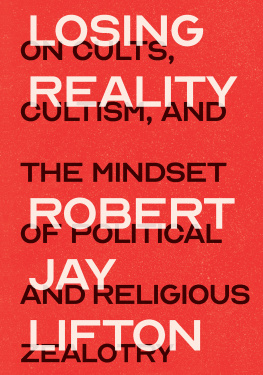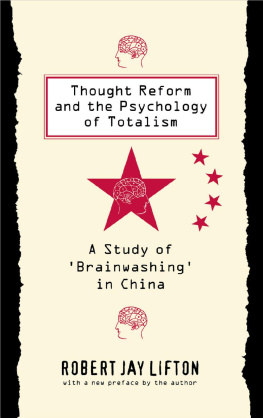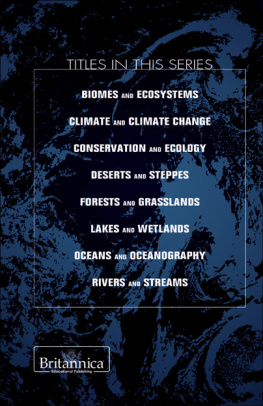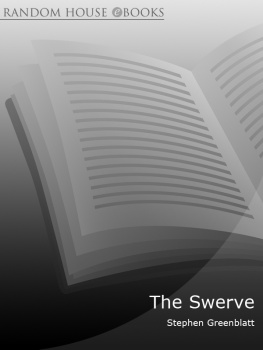Lifton - The Climate Swerve
Here you can read online Lifton - The Climate Swerve full text of the book (entire story) in english for free. Download pdf and epub, get meaning, cover and reviews about this ebook. year: 2017, publisher: New Press, genre: Politics. Description of the work, (preface) as well as reviews are available. Best literature library LitArk.com created for fans of good reading and offers a wide selection of genres:
Romance novel
Science fiction
Adventure
Detective
Science
History
Home and family
Prose
Art
Politics
Computer
Non-fiction
Religion
Business
Children
Humor
Choose a favorite category and find really read worthwhile books. Enjoy immersion in the world of imagination, feel the emotions of the characters or learn something new for yourself, make an fascinating discovery.

- Book:The Climate Swerve
- Author:
- Publisher:New Press
- Genre:
- Year:2017
- Rating:5 / 5
- Favourites:Add to favourites
- Your mark:
- 100
- 1
- 2
- 3
- 4
- 5
The Climate Swerve: summary, description and annotation
We offer to read an annotation, description, summary or preface (depends on what the author of the book "The Climate Swerve" wrote himself). If you haven't found the necessary information about the book — write in the comments, we will try to find it.
Lifton: author's other books
Who wrote The Climate Swerve? Find out the surname, the name of the author of the book and a list of all author's works by series.
The Climate Swerve — read online for free the complete book (whole text) full work
Below is the text of the book, divided by pages. System saving the place of the last page read, allows you to conveniently read the book "The Climate Swerve" online for free, without having to search again every time where you left off. Put a bookmark, and you can go to the page where you finished reading at any time.
Font size:
Interval:
Bookmark:
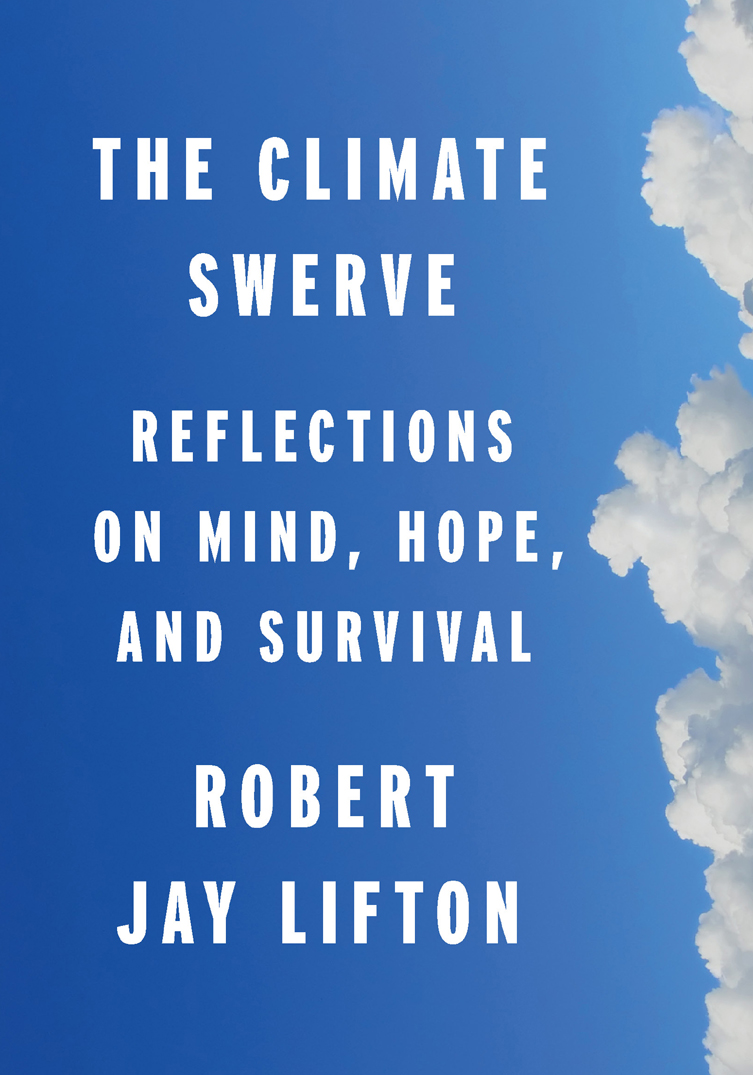

ALSO BY ROBERT JAY LIFTON
Witness to an Extreme Century: A Memoir
Death in Life: Survivors of Hiroshima
Hiroshima in America: Fifty Years of Denial (with Greg Mitchell)
The Nazi Doctors: Medical Killing and the Psychology of Genocide
The Genocidal Mentality: Nazi Holocaust and Nuclear Threat (with Eric Markusen)
Indefensible Weapons: The Political and Psychological Case against Nuclearism (with Richard Falk)
Destroying the World to Save It: Aum Shinrikyo, Apocalyptic Violence, and the New Global Terrorism
Home from the War: Vietnam VeteransNeither Victims nor Executioners
Thought Reform and the Psychology of Totalism: A Study of Brainwashing in China
Revolutionary Immortality: Mao Tse-tung and the Chinese Cultural Revolution
The Protean Self: Human Resilience in an Age of Fragmentation
The Broken Connection: On Death and the Continuity of Life
The Future of Immortality: And Other Essays for a Nuclear Age Birds (humorous cartoons)

2017 by Robert Jay Lifton
All rights reserved.
No part of this book may be reproduced, in any form, without written permission from the publisher.
Requests for permission to reproduce selections from this book should be mailed to: Permissions Department, The New Press, 120 Wall Street, 31st floor, New York, NY 10005.
Published in the United States by The New Press, New York, 2017
Distributed by Perseus Distribution
ISBN 978-1-62097-348-6 (e-book)
CIP data is available
The New Press publishes books that promote and enrich public discussion and understanding of the issues vital to our democracy and to a more equitable world. These books are made possible by the enthusiasm of our readers; the support of a committed group of donors, large and small; the collaboration of our many partners in the independent media and the not-for-profit sector; booksellers, who often hand-sell New Press books; librarians; and above all by our authors.
www.thenewpress.com
Composition by dix!
This book was set in Garamond Premier Pro
Printed in the United States of America
10 9 8 7 6 5 4 3 2 1
For Nancy Rosenblum with love and astonishment
In a dark time, the eye begins to see.
Theodore Roethke
Contents
This is a book about climate change but not a detailed study of its ubiquitous effects, or of its political requirements. Rather it is an exploration of mind and habitat, a meditation on what I call the climate swerve, our evolving awareness of our predicament. The climate swerve creates a mind-set capable of constructive action, and is a significant source of hope.
During sixty years of thinking and writing about nuclear weapons I frequently came upon people and events pivotal to the climate story. But it took me a long time to grasp the significance of these encounters and turn my focus to mind-sets related to global warming. I am part of that climate swerve.
Living in Hiroshima for six months in 1962 and interviewing survivors there gave me a hands-on sense of the human effects of nuclear weapons. Like global warming, those weapons raised doubts about the future of our species. I came to recognize that one can learn much by comparing these two apocalyptic twins and our responses to them. I came to see parallels, differences, and overlappings.
When talking to people in Hiroshima I found myself wondering about what went on, psychologically and politically, at the other end of the weapon. This concern with both survivors and scientists, with their voices and mind-sets, will be prominent throughout this book. Survivors, like those in Hiroshima, seek meaning from their death encounter, and they may embark on a mission of witness that can be illuminating to their fellow human beings. Scientists created nuclear weapons and then warned us about their danger; it was scientists who revealed to us the devastating consequences of global warming. Scientists in particular, and professionals in general, bring special authority to nuclear and climate matters, which is why the few among them who become associated with various forms of denial, falsification, and rejection have done such great harm.
My work on climate change, then, owes much to my study over the decades of the minds relationship to murderous nuclear devices and the world-ending threat they pose. But other studies I have done are also relevant to my approach to the climate story: my work on Chinese thought reform and the minds response to totalism; Vietnam veterans and the American confrontation with atrocity; and Nazi doctors and the potential of professionals for active collusion in genocide. The destructive forces encountered in these studies shed light on human-caused climate disaster.
At the same time, the Paris Climate Conference in December 2015 was a stunning demonstration of universal awareness of the danger of global warming, of what I call the climate swerve. Virtually every nation in the world joined in a recognition that we are part of a single species in deep trouble. More recently many of the signatories have expressed further commitment to specific promises to reduce carbon emissions. This display of species awareness is unprecedented, and holds out the possibility that we humans may extricate ourselves from extreme climate catastrophe.
To be sure, there is profound resistance to such awareness, even at times a vicious backlash. The problem is magnified by right-wing political forces, sometimes termed populist or ethnonationalist movements, gaining power in parts of the world, groups that reject climate change and slander its advocates. Most notable here, and most dangerous to the world, is Donald Trump, the recently elected American president. He and people he has chosen to serve in his administration view climate change as nonexistent, not human caused, or a hoax. But even Trump and his allies cannot fully avoid, in some part of their minds, the recognition that harmful, human-caused climate change does indeed exist. In that sense they are less climate deniers than climate rejecters. Their danger lies in both the actions they resist and those they take. Yet in ways I will consider further, they too are susceptible to the forces at play in the climate swerve.
Climate change confronts us with the most demanding and unique psychological task ever faced by humankind. Yet we have the capacity to apply our minds to this task in the service of protecting our habitat and survivingperhaps renewing ourselvesas a species.
No one claiming to be an intellectual or a concerned citizen can avoid confronting either the nuclear or the climate threat. But because the climate problem is all-enveloping, no individual person can adequately encompass it. My portion of itthe task I have set for myselfis the comparison of nuclear and climate threats as a way of focusing on the dilemmas we face in connection with our own prior and contemporary actions. I make no claim that this perspective will in itself decrease our carbon emissions or stem the overall rise in sea levels. But even as it enables us to take another look at the still-pervasive nuclear danger, I believe it can offer a measure of insight into grasping our climate menace and acting on it.
Font size:
Interval:
Bookmark:
Similar books «The Climate Swerve»
Look at similar books to The Climate Swerve. We have selected literature similar in name and meaning in the hope of providing readers with more options to find new, interesting, not yet read works.
Discussion, reviews of the book The Climate Swerve and just readers' own opinions. Leave your comments, write what you think about the work, its meaning or the main characters. Specify what exactly you liked and what you didn't like, and why you think so.


